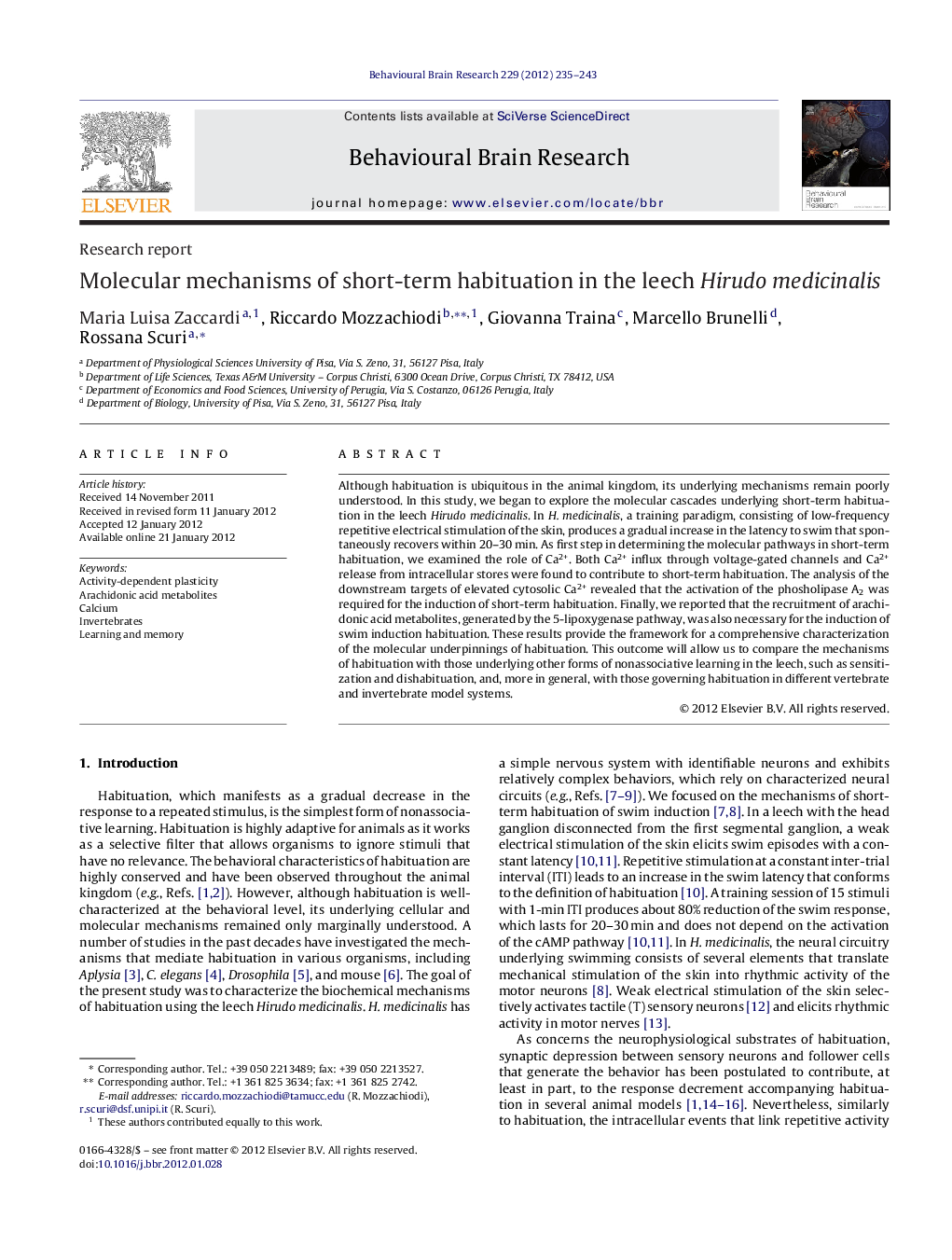| Article ID | Journal | Published Year | Pages | File Type |
|---|---|---|---|---|
| 4313367 | Behavioural Brain Research | 2012 | 9 Pages |
Although habituation is ubiquitous in the animal kingdom, its underlying mechanisms remain poorly understood. In this study, we began to explore the molecular cascades underlying short-term habituation in the leech Hirudo medicinalis. In H. medicinalis, a training paradigm, consisting of low-frequency repetitive electrical stimulation of the skin, produces a gradual increase in the latency to swim that spontaneously recovers within 20–30 min. As first step in determining the molecular pathways in short-term habituation, we examined the role of Ca2+. Both Ca2+ influx through voltage-gated channels and Ca2+ release from intracellular stores were found to contribute to short-term habituation. The analysis of the downstream targets of elevated cytosolic Ca2+ revealed that the activation of the phosholipase A2 was required for the induction of short-term habituation. Finally, we reported that the recruitment of arachidonic acid metabolites, generated by the 5-lipoxygenase pathway, was also necessary for the induction of swim induction habituation. These results provide the framework for a comprehensive characterization of the molecular underpinnings of habituation. This outcome will allow us to compare the mechanisms of habituation with those underlying other forms of nonassociative learning in the leech, such as sensitization and dishabituation, and, more in general, with those governing habituation in different vertebrate and invertebrate model systems.
► The biochemical steps underlying short-term habituation are described insert in the leech. ► Ca2+ influx through voltage-gated channels is required for short-term habituation. ► Ca2+ released from intracellular stores is also necessary for short-term habituation. ► Blockade of phospholipase A2 prevents the induction of short-term habituation. ► The 5-lipoxygenase pathway is required for short-term habituation.
